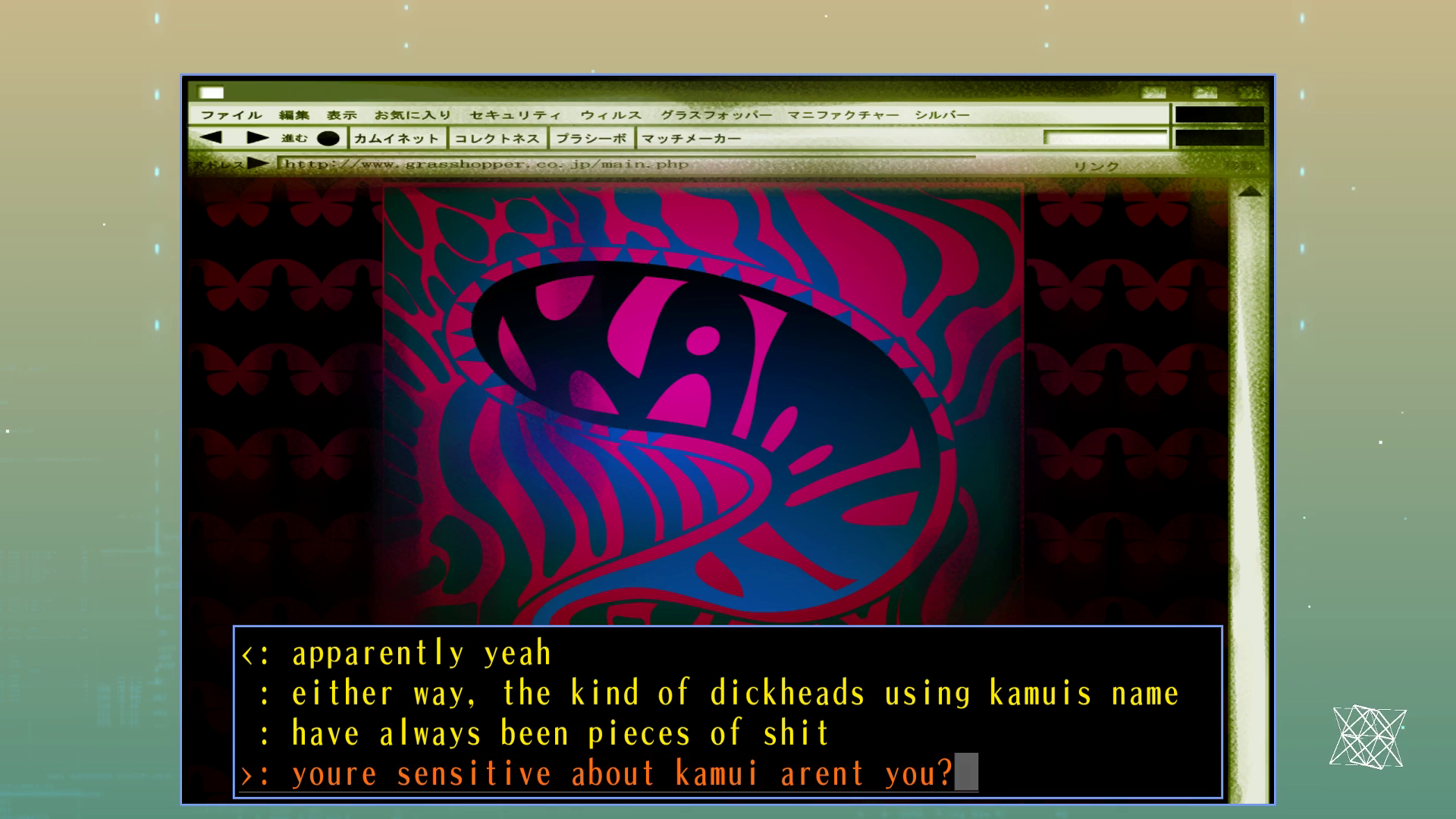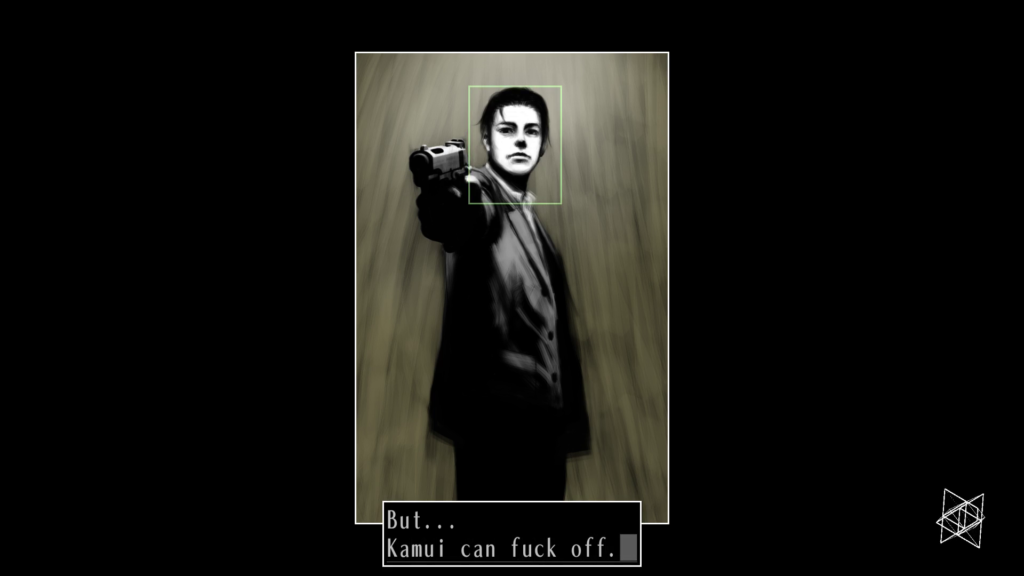
Strangely, characters who previously understood Kamui in positive terms now regard him as a monster or disgusting. In “TIGIRI,” Tokio no longer calls Kamui “the words of the people” but describes him in extremely negative terms. For instance, he tells Slash, “the kind of dickheads using kamuis name have always been pieces of shit.” Sumio has shifted from one of the Mikumo Boys who pursue justice in the savior Kamui model in “Parade” to having his major badass scene in “digital man” be gunning down Shiroyabu and saying, “But Kamui can fuck off.” Bizarrely, he does this stating he approves of Shiroyabu’s goal in general, even though this goal is killing Kamui, which apparently Sumio now agrees with. So why is he telling Kamui to fuck off?

Interestingly, though, perhaps confirming Tokio’s email to himself that claims only Ayame can beat Kamui, immediately before shooting Shiroyabu and damning Kamui, Sumio gives Shimohira Ayame flowers and speaks to her as his true love. Meanwhile, in the Placebo storyline, Ooka seems to depict Shimohira as having been executed in 1999 despite also writing that she is alive.
***
The messaging of Kamui/Ayame in The 25th Ward is muddled. While the polyphonic voice of the story allows for various perspectives, the overall picture is not entirely coherent even for individual characters. Kamui/Ayame follow no clear narrative pattern but are almost always understood either as ineffective at liberation or as the crushing, deadening force of the surveillance state dictatorship itself, the weight of the dead past. In an alternative reading, Kamui/Ayame is more like a superpower or idea some characters possess, disconnected from ideology, goals, or personal history. This is consistent with Meru’s view of Kamui as a murderous impulse neither good nor bad. Shiroyabu is the child of the new millennium, not the rewarding figure his mother wanted but the foolish, malleable slave Enzawa sought. The savior Kamui is gone, and all that is left is survivors battling over his legacy like they once did his eyes.